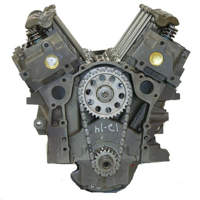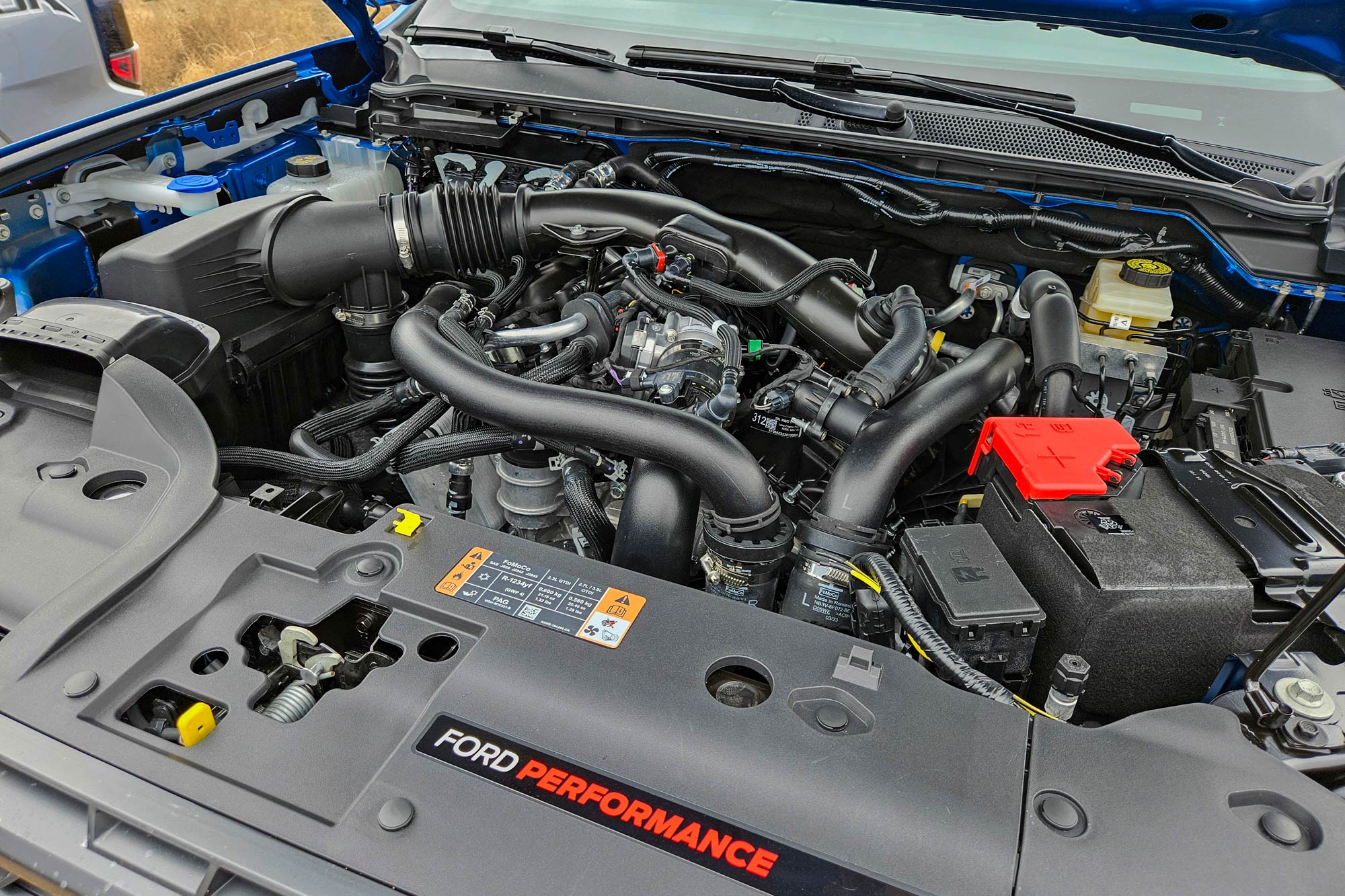How to Select the Right Cars And Truck Engine for Optimum Efficiency and Efficiency
Selecting the suitable car engine to attain an ideal equilibrium of efficiency and performance necessitates a nuanced understanding of various engine kinds and their specific features (2.2 ford ranger engine). Aspects such as engine displacement, the number of cylinders, and fuel type play an essential role in identifying both power result and fuel economic climate.
Comprehending Engine Types
When choosing an auto, among the most vital components to take into consideration is the engine type, which functions as the heart of the lorry. The engine kind dramatically affects the vehicle's total efficiency, long life, and viability for your driving requirements. There are mainly 3 engine kinds to consider: interior burning engines (ICE), hybrid engines, and electric engines.
Inner combustion engines remain one of the most typical, operating fuel or diesel. They are known for their power and velocity, making them suitable for performance-oriented cars. They might fall short in fuel effectiveness and ecological impact.
Crossbreed engines combine an internal combustion engine with an electrical motor, providing an equilibrium between efficiency and fuel economic situation. They are increasingly popular for motorists looking for reduced emissions while still delivering adequate power.
Electric engines, powered entirely by batteries, are gaining grip because of their ecological advantages and reduced running expenses. They supply immediate torque and a peaceful driving experience, making them ideal for urban commuting.

Efficiency vs. Efficiency
Choosing the right engine kind involves considering the trade-offs between efficiency and effectiveness. Efficiency typically describes exactly how well an engine can provide power and acceleration, which is usually connected with larger variation engines or those with turbocharging capacities. These engines normally offer exciting driving experiences and quick action times, making them prominent amongst enthusiasts.
On the other hand, effectiveness concentrates on fuel economic climate and reduced discharges. Smaller sized engines, particularly those geared up with advanced modern technologies such as direct gas shot and variable valve timing, often tend to provide better miles per gallon and lowered carbon footprints. While these engines may give up some power contrasted to their larger counterparts, they typically stand out in day-to-day driving circumstances where high efficiency is not constantly required.
Ultimately, the option between efficiency and effectiveness depend upon private concerns. A vehicle driver who values perky driving may focus on a high-performance engine, while a person seeking economical commuting might lean towards a reliable choice. Comprehending these trade-offs is important for making an educated choice that straightens with your driving needs and way of life, guaranteeing that the chosen engine kind complements your assumptions for both efficiency and efficiency.
Key Specifications to Consider
Recognizing vital specifications is necessary for making an informed choice about the ideal automobile engine. When picking an engine, several crucial factors call for consideration to ensure optimum performance and effectiveness.
To start with, engine variation, gauged in liters or cubic centimeters, is a crucial requirements. It suggests the total quantity of the engine's cylinders and normally associates with power outcome; bigger displacements commonly generate more power. Next off, the variety of cylinders plays a considerable duty in efficiency attributes. Engines with more cylinders can supply smoother procedure and higher power, while smaller sized setups can enhance gas efficiency.
In addition, the engine's arrangement, whether inline, V-type, or rotating, affects the total style and performance attributes of the lorry - 2.2 ford ranger engine. Turbocharging and supercharging modern technologies should also be evaluated; these increase an engine's power outcome without substantially boosting its dimension, hence boosting efficiency
Gas kind is one more essential consideration, as it impacts both efficiency and prices. The engine's compression proportion impacts efficiency and power distribution; a greater proportion generally leads to better effectiveness, but might require superior fuel. By meticulously assessing these requirements, you can choose an engine that lines up with your performance and efficiency goals.
Reviewing Driving Demands
Examining driving needs is an essential action in identifying the best car engine for your way of life and use patterns. Begin by assessing your day-to-day driving habits, including the regularity and period of trips. A smaller engine with great gas effectiveness might be adequate if your driving mainly is composed of short commutes in metropolitan atmospheres. Conversely, if you regularly embark on long-distance journeys or call for towing capacities, a more effective engine might be needed.
Consider the surface you commonly browse. Hilly or sturdy landscapes might demand an engine with higher torque for far better performance. Furthermore, review passenger and cargo requirements; larger families or those who carry goods might take advantage of vehicles with enhanced power and ability.
It's likewise important to assess your fuel preferences. Diesel engines frequently provide exceptional torque and fuel economic climate for heavier lorries, while gas engines might supply a smoother and quieter trip. Element in environmental considerations, as hybrid or electric engines can supply a much more lasting option without sacrificing efficiency. By thoroughly comprehending your driving requirements, you can make an educated decision that lines up with both performance expectations and efficiency goals.
Future Fads in Engine Modern Technology
As the auto industry remains to develop, Homepage advancements in engine innovation are leading the way for a lot more reliable and sustainable driving sites experiences. One considerable fad is the change towards electrification, with crossbreed and totally electric powertrains obtaining prominence. Automakers are investing greatly in battery modern technology to improve energy thickness and lower billing times, ultimately boosting the usefulness of electric vehicles (EVs)
One more arising trend is the growth of hydrogen fuel cell engines. 2.2 ford ranger engine. These systems supply the capacity for zero-emission driving while offering refueling times similar to conventional gasoline engines. Furthermore, advancements in combustion technology, such as variable compression ratios and boosted turbocharging, are enhancing standard inner combustion engines for better effectiveness and efficiency
Digital combination is additionally an essential facet of future engine technology. The execution of expert system and machine discovering enables real-time information analysis, enabling smarter engine monitoring systems that adapt to driving conditions and improve fuel performance.

Final Thought
Finally, selecting the suitable auto engine requires a thorough analysis of numerous elements, including engine type, performance needs, and effectiveness objectives. By recognizing the distinctions between various engine kinds and considering crucial requirements, people can align their options with certain driving needs. As developments in engine modern technology proceed to arise, continuing to be notified concerning future patterns will certainly even more improve decision-making, eventually bring about a vehicle that balances performance and gas effectiveness efficiently.
Picking the suitable car engine to accomplish an ideal equilibrium of performance and performance requires a nuanced understanding click over here of various engine kinds and their particular qualities. There are primarily three engine types to take into consideration: inner combustion engines (ICE), hybrid engines, and electrical engines.
Efficiency normally refers to exactly how well an engine can supply power and acceleration, which is commonly associated with larger variation engines or those with turbocharging abilities. Diesel engines frequently offer exceptional torque and fuel economy for much heavier lorries, while fuel engines may offer a smoother and quieter adventure.In conclusion, choosing the suitable cars and truck engine demands a detailed evaluation of numerous factors, consisting of engine type, efficiency requirements, and effectiveness objectives.
Comments on “How the 2.2 Ford Ranger Engine Delivers Power and Efficiency for Your Truck”